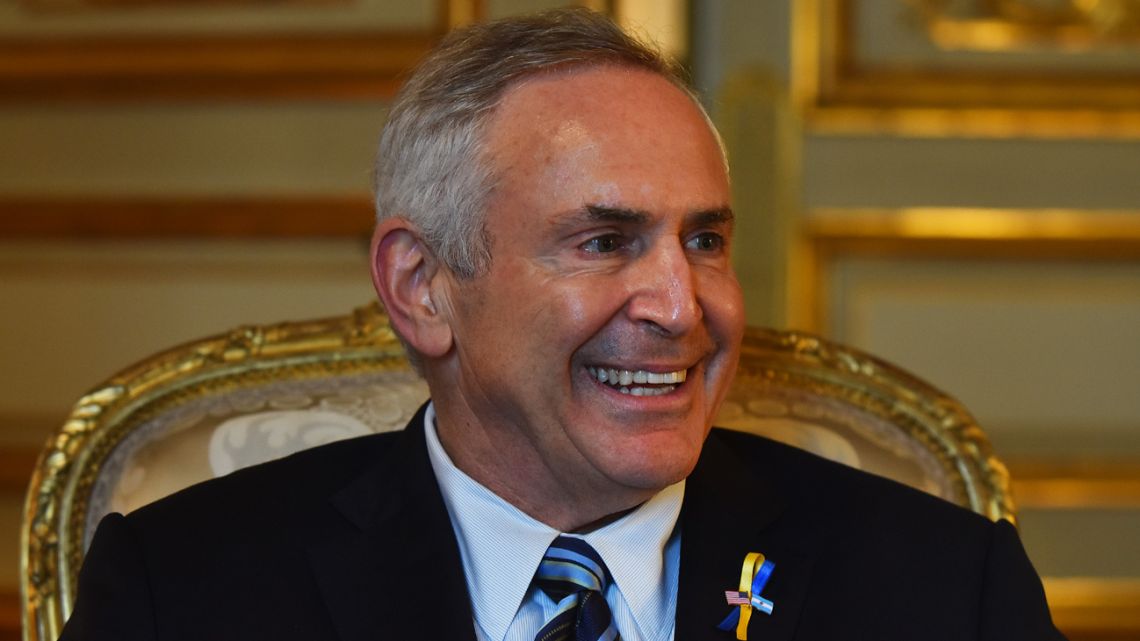(Opinion) The recent actions of Marc Stanley, the US ambassador to Argentina, paint a compelling picture of the nuanced role of diplomacy.
Eager to interact with every significant presidential pre-candidate, his actions suggest that the US is not just maintaining relations but might be keenly focused on the bigger geopolitical game.
Stanley’s visit to Juan Grabois, a pre-candidate known for his anti-imperialistic views, is intriguing.
Opting to meet at Grabois’s office, surrounded by images of Latin American leftist leaders, instead of the neutral ground of the US embassy, suggests a new US approach: reaching out even when it’s uncomfortable.
But why?

While viewing this as a genuine attempt at building bridges is tempting, a deeper dive might hint at underlying concerns about the US’s waning financial influence in Argentina.
There’s a larger context here: China’s growing influence in Latin America.
With the Argentine government increasingly turning to the yuan in its dealings with the International Monetary Fund, it seems the US might be feeling the heat.
Stanley’s amiable overtures, from tasting local delicacies to admiring Lionel Messi, might appeal to the masses.
But the real question is: Are these gestures genuine attempts at building relations or a strategy to counterbalance China’s deepening ties with Argentina?
Stanley’s outreach extends beyond the candidates, including meetings with pivotal figures like former president Cristina Fernández de Kirchner.
This paints a picture of the US attempting a two-pronged approach: cementing relations with established political figures while also reaching out to new potential leaders.
But not all of Stanley’s endeavors have been smooth.
His remarks likening Argentina to a “beautiful tourist bus with non-functioning wheels” and meeting with Ukrainian communities seemingly to fan anti-Russian sentiments indicate a diplomat straddling between public outreach and potential covert agendas.
Analysts suggest the US hopes for moderate victors in the Argentine primaries, which might indicate a desire for a predictable economic landscape rather than disruptive policy changes.
Stanley’s apparent warmth towards certain political sections might be less about mutual respect and more about safeguarding US interests.
In conclusion, while diplomacy maintains and fosters relationships, the US’s current engagement in Argentina raises pertinent questions.
Is it merely about fostering ties, or is there a larger play in the background centered around the global contest for influence?
Only time will tell, but it’s essential to observe with a critical eye.

